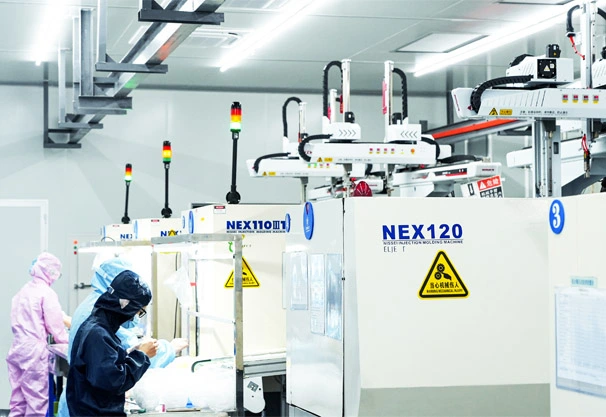Clean rooms are used in certain sectors of the injection molding industry, where airborne particles may adversely affect the molding process or the final product. Industries that use cleanroom technology include medical devices, pharmaceuticals, life sciences, food packaging, and the military.
Cleanrooms vary in size, design and classification but typically function to remove air pollution from enclosed areas. Clean room injection molding is often designed to control and maintain environmental conditions such as temperature, humidity and pressure. Consistent environmental conditions are also conducive to maintaining a stable molding process. High-efficiency particulate air (HEPA) filters are used to remove particles as small as 0.3 microns from the air, and to improve cleanliness, ultra-low particulate air (ULPA) filters are required.
Manufacturers using clean room injection molding typically follow Good Manufacturing Practice (GMP) which includes training, test record calibration. Personnel entering the cleanroom are often required to wear special clothing to reduce the spread of contamination. Cleanroom apparel typically includes hair nets, beard covers, lab coats, shoe covers, face shields, and goggles.

1. Controlled clean environment
2. Particle free and hygienic
3. High quality surface
4. Cleanroom class comply with EN ISO 14644 standard
5. High purity products for medical, electronics and similar industries